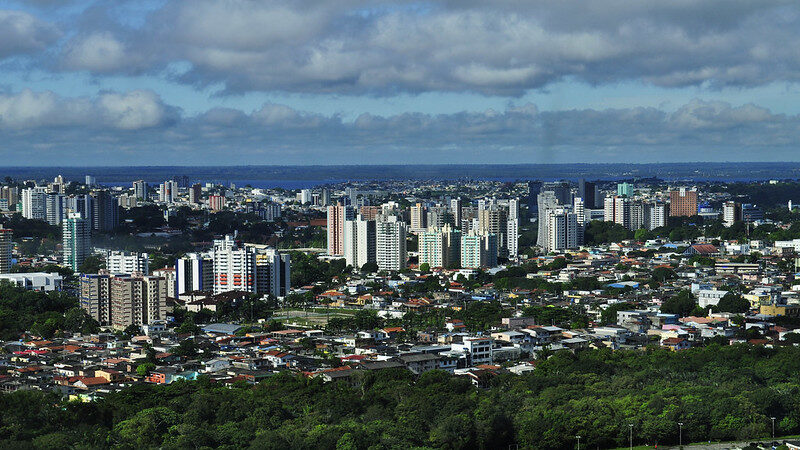It’s official. The US has federal climate legislation. President Joe Biden signed on the dotted line on Tuesday.
Only a month ago, it looked impossible. Even after senator Joe Manchin’s surprise change of heart, many hardly dared to believe it. Yet here it is.
Politically, it is a huge and long overdue breakthrough, against formidable vested interests. Substantively, it is far from enough to keep a 1.5C global warming limit in reach.
Analysts project that it will get the US about four fifths of the way to its 2030 emissions reduction target. There are a lot of factors that could amplify or blunt the impact.
Jesse Jenkins, the Princeton professor behind the widely cited Repeat model, hailed signs of increased action from state and business leaders. As an injection of federal funds makes clean technology cheaper, it could tip the balance in favour of the climate action on many levels.
On the other hand, a big bet on carbon capture technologies is risky. Scaling up carbon capture and storage means thousands of miles of pipeline, which is bound to be controversial. That’s even if the industry can make it commercially viable without using the CO2 to pump more oil.
The $370 billion spending on climate action is less than half the US’ annual military budget. It puts America first, with protectionist measures and no sign of further support for developing countries.
Accordingly, the international response has been muted. The bill’s passage was not enough to repair a strained relationship with China. Since the cancellation of a planned bilateral working group earlier this month, the world’s two economic superpowers have resorted to conducting climate diplomacy over Twitter.
This week’s news…
- Brazil election: Lula challenges Bolsonaro’s deforestation record, backs oil development
- China responds coolly to US climate bill, rejecting a call to resume cooperation
- After finally passing a climate bill, US calls on others to act
…and comment
There are more hopeful signs for climate cooperation from Brazil, where halting deforestation is emerging as a voter priority for October’s presidential election.
Former president Luiz Inácio “Lula” da Silva set out his platform this week from a leading position in opinion polls. It includes rebuilding the environmental institutions de-funded by incumbent Jair Bolsonaro and providing “green” loans to farmers.
Bolsonaro, running for reelection, is proposing to hire 6,000 firefighters to tackle wildfires and finance emission reductions with green bonds and carbon credits.
More pertinent than their plans, though, are their records. Lula oversaw a historic decrease in deforestation 2003-2011. Under Bolsonaro, the rate of destruction resurged to a 12-year high, as the government opened the Amazon to business and suppressed indigenous land rights.
On fossil fuels, there is not much to choose between the two candidates. While Lula talks about diversifying state-owned Petrobras away from oil in the long term, for now he backs expanding production.
Diplomatically, Bolsonaro was hostile to what he saw as interference on Brazil’s sovereign territory. A change of leadership offers a chance for a reset.
